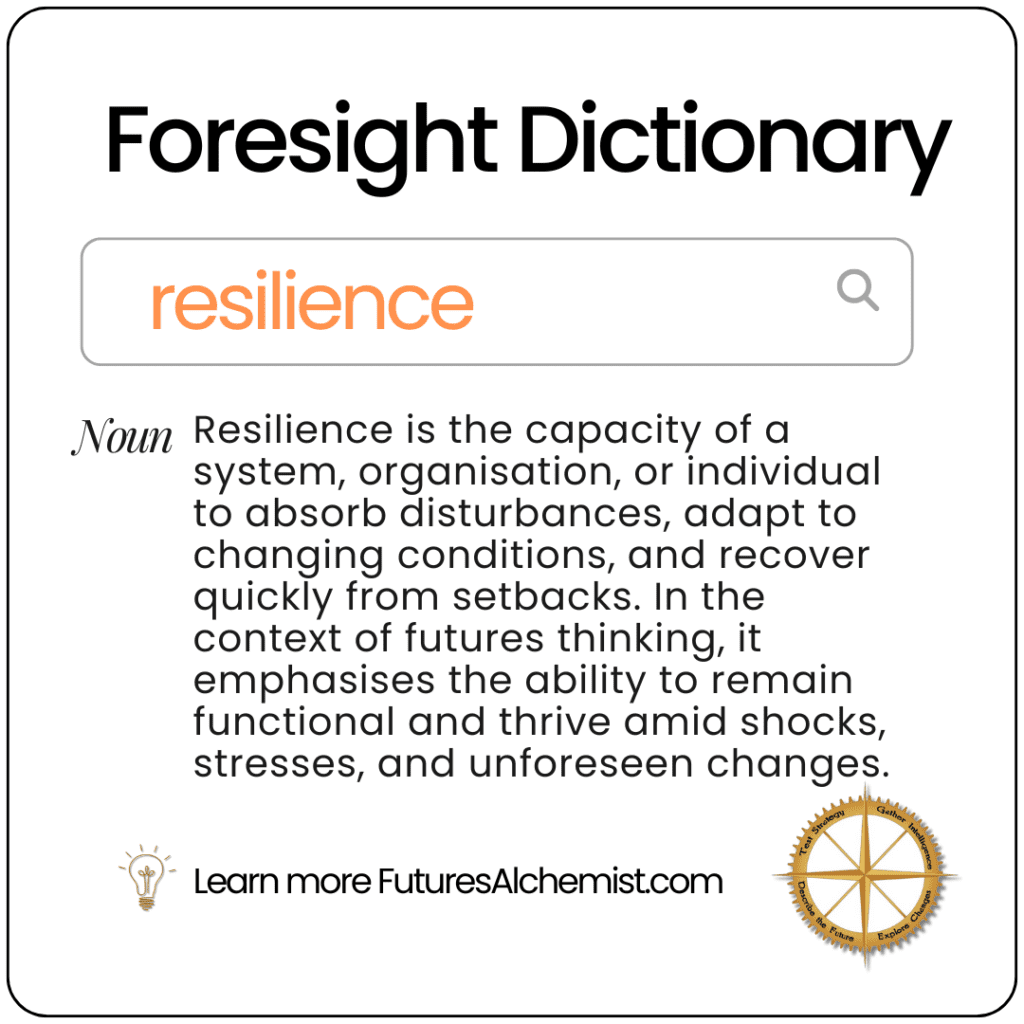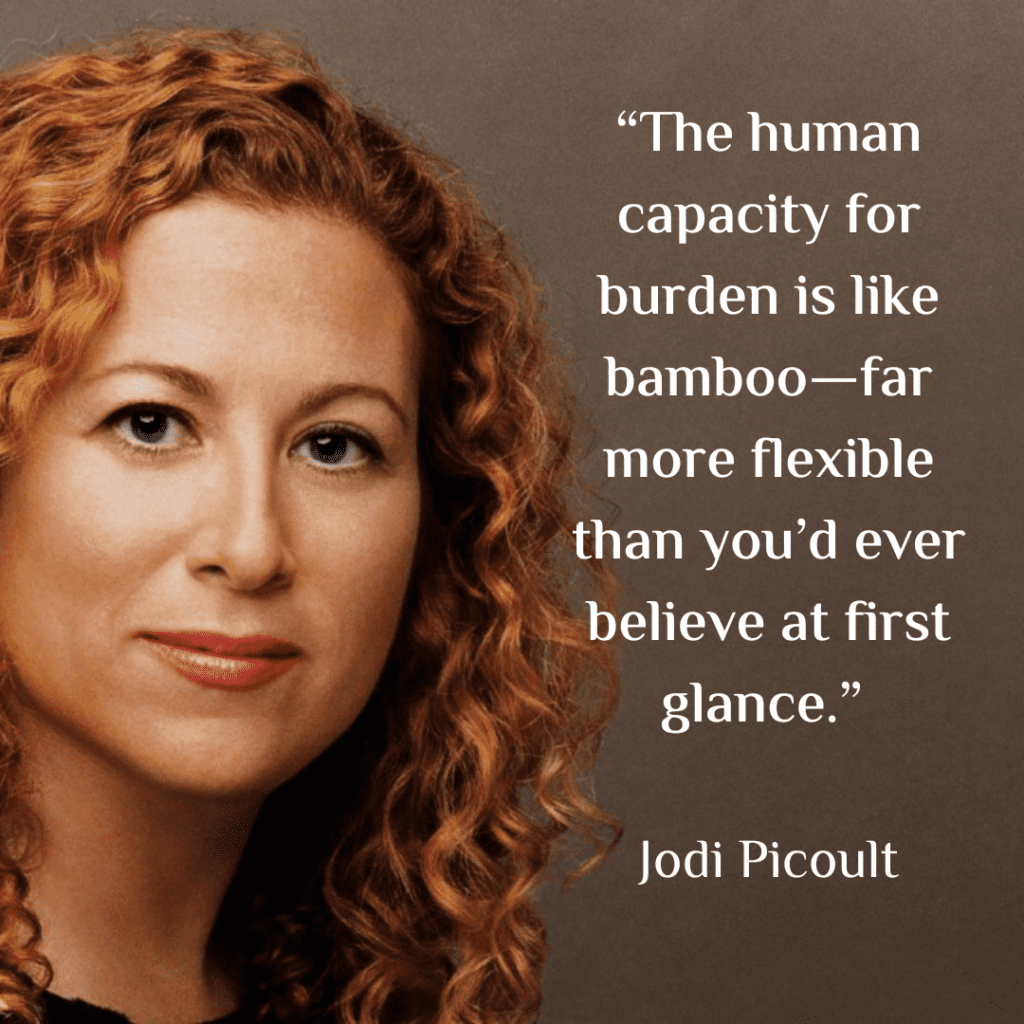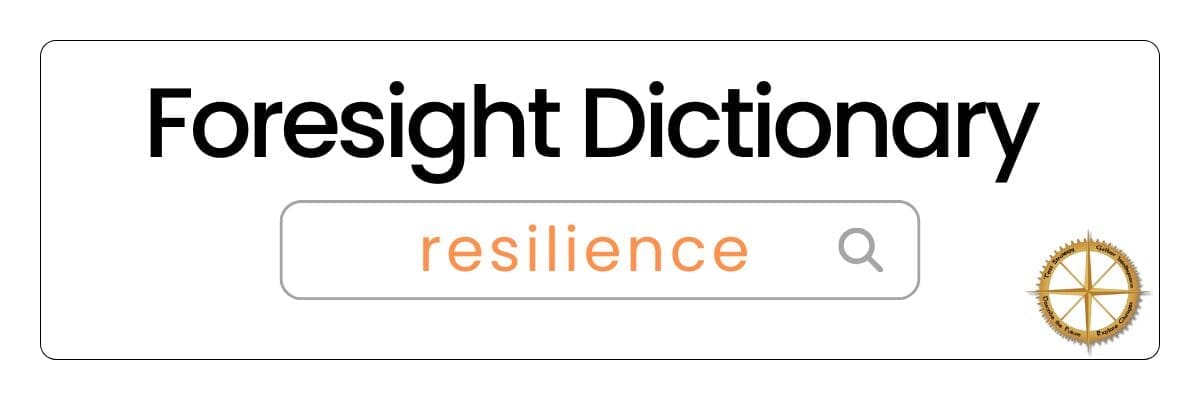

Definition
Resilience is the capacity of a system, organisation, or individual to absorb disturbances, adapt to changing conditions, and recover quickly from setbacks. In the context of futures thinking, it emphasises the ability to remain functional and thrive amid shocks, stresses, and unforeseen changes.
Example
New Oreleans
One of the most cited examples of resilience is the city of New Orleans after Hurricane Katrina in 2005. Despite the catastrophic damage, the community and government efforts focused on rebuilding stronger infrastructure, better disaster preparedness, and more robust social systems to prevent similar devastation in the future.
Ask yourself
- How prepared am I, or is my organisation, to handle unexpected challenges?
- What strategies do I have in place to bounce back from setbacks?
- What margins do I need for space to recover so that I am not running at the edge of my capacity?
- How can I learn from past disruptions to build greater resilience for the future?
- In what ways can I adapt my current plans to account for potential future shocks?
Tools
- Scenario Planning: A method used to anticipate possible future disruptions and develop strategies to cope with them.
- Stress Testing: Assessing the resilience of systems by evaluating how they perform under extreme conditions.
- Adaptive Leadership: A leadership style that encourages flexibility, continuous learning, and the ability to pivot when faced with challenges.
- Resilience Engineering: An approach focused on designing systems that can withstand and recover from unexpected disruptions.





